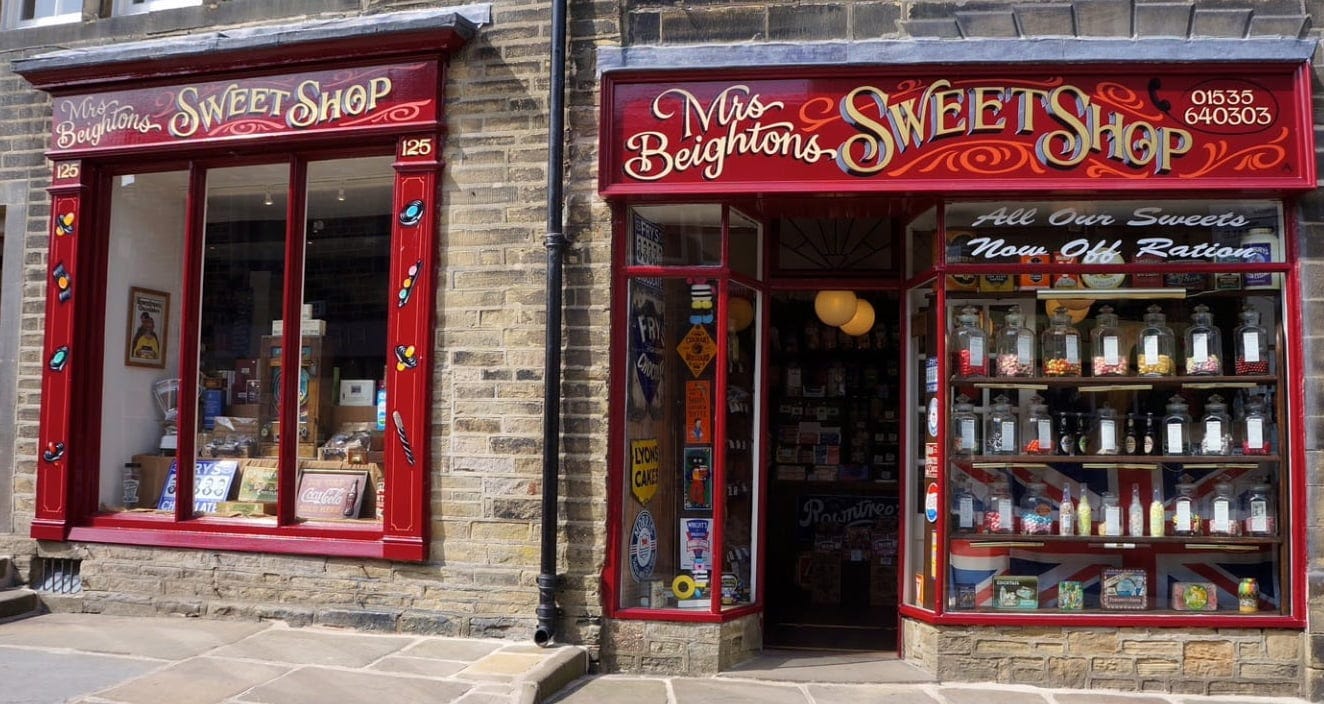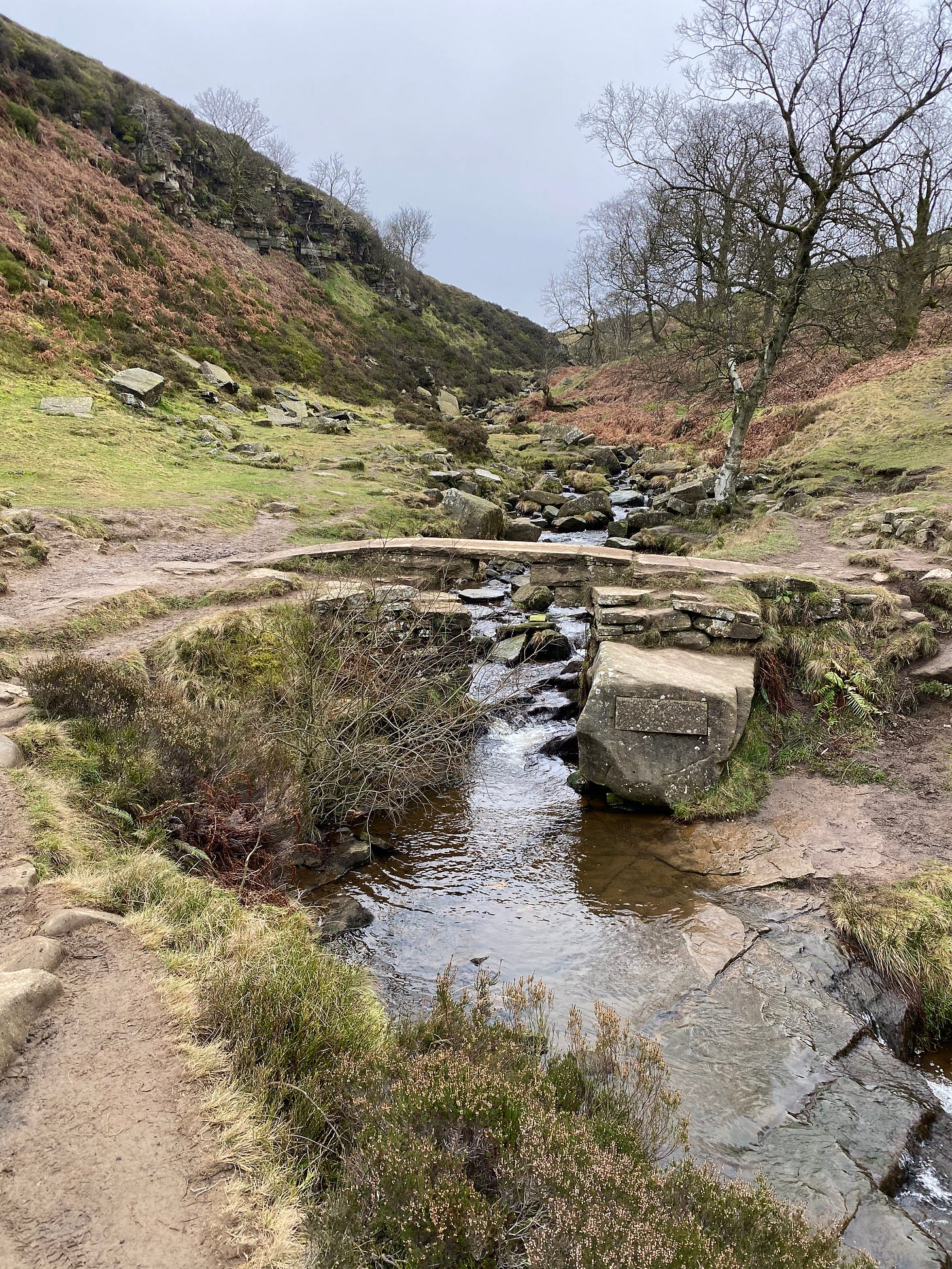Wuthering Heights
What if the Messi story was written by a Brontë
When I first read Wuthering Heights, I did not enjoy either of the leads. Catherine and Heathcliff just weren’t that likeable. I didn’t get them. In fact they annoyed me. I preferred Jane Eyre, perhaps because my greatest teacher Mrs Wood, made it magic.
I like them now, their purpose. The Moors in which their story was told is a place I visit frequently.
There is a walk, a round a 10k loop that my children from a young age can be bribed with. Before we start the walk we visit Mrs Beightons and load up with bags of pick ‘n’ mix.
Half way around the walk you come across Brontë Waterfall’s. And settle for your picnic under (because it is Yorkshire) grey clouds and light drizzle.
And here, regardless of your love of the characters, you become immersed in the nature of Brontë land. There is no easy route, so whilst there are tourists, you often have the spot to yourself.
The story is not easily accessible, in fact it is a text that does not ask your opinion. You have to enter her world, step in her footsteps.
"I wish I were a girl again, half-savage and hardy, and free... I'm sure I should be myself were I once among the heather on those hills."
— Catherine Earnshaw —
Wuthering Heights was an outlier when it launched. It wasn’t tidy or moral. It was chaotic, driven by feeling, and almost entirely internal. The power of the story didn’t come from plot. It came from place and emotion. The moors weren’t just a setting, they were a character. A mood. A mirror. So vivid in-fact, they are my mood almost two centuries later.
It’s messy, intense, sometimes so frustrating it is not an enjoyable read. You have to take a break, but you are invested
It’s not about passive consumption. It’s about emotional investment. Identity. Obsession. And this is the magic of Emily Brontë (and her sisters) and the worlds she created.
Why we need Emily right now
The great stories are unapologetic. The universe they exist within are consistent, thoughtful and deep.
The Hobbit, Game of Thrones, Harry Potter, World of Warcraft, The Dark Tower, Dracula, Hamlet and my personal favourite The Adventures of Flashman* are vast in size and immersive. NOTE: These are personal to me, there are I am sure equally wonderful story worlds available.
*Recommended to me by Eric Huang, who now has his own beautiful stories published. If you ever need story recommendations, ask Eric.
They did not ask for feedback. They were not beholden to the algorithm. they were immersed in a highly detailed world with more sub-plots than you could ever explore.
Perhaps the closest modern story worlds sit in the Anime space. Where they were mass consumed and highly aligned with Asian culture and mostly left alone by Western media, until recently.
In Akira, Neo-Tokyo isn’t just a backdrop, it’s part of the tension. I’d never been to Tokyo, but felt immersed in this version of it. Everything feels on edge. The city’s falling apart, and the characters are trying not to. Tetsuo’s meltdown feels less like science fiction and more like a kid cracking under pressure. You can relate, when really you have no experience of that world or his journey.
And we can argue the semantics of originality, but these great stores were original (fashioned on other stories I’m sure) and truly personal.
I think the modern story world needs the Brontë sisters. Three finesses they possessed:
Real Feels. Don’t play it safe. Intensity creates memory.Story places, not plots. Fandoms grow best inside worlds that feel inhabited, even haunted.Inspire interpretation. Don’t close every loop. Let people bring their own meaning to the work.
So what story would Emily create right now?
“It’s messy, intense, sometimes so haunting it is not an enjoyable read. You have to take a break, but you are invested
It’s not about passive consumption. It’s about emotional investment. Identity. Belonging. Obsession”
Well, that sounds like supporting a sports team, or for a young child becoming a sports hero. Following a painful journey of realisation, knocks, intricate details, choices and ultimately finding your place in the world.
The Brontë’s created characters and stories that lasted is they transported you to their world, allowed you to see through their characters eyes. But not just the wins. The moments that sculpted them, the slow moments that we all experience, but do not share. Because they are important to us, without realising it, but not to anyone else. We don’t celebrate them, they just happen, but they make us who we are.
I think I’m asking for more quiet moments.
I wanted to be a journalist, but fell into business and economics and ultimately research. I’m in awe and have got to work with superb story tellers and writers. So here is my attempt at a short sports story crossed with Wuthering Heights.
With a anime style generated image for fun.
El Chico que Dejó el Río
The streets were empty except for the dogs and the wind. Rosario didn’t sleep, not really. It shifted, it hummed. But in the hour before dusk, it stilled.
Leo walked alone, a scuffed ball nudging forward with each step, the rhythm soft and thoughtless, but fluent. His shoes slapped unevenly against the pavement. Concrete, then dirt. A curb swallowed by grass. Behind the buildings, the Paraná River breathed in slow, heavy swells. The air smelt of oranges, damp earth and a metallic smell carried from the docks.
There was no one watching. No voice calling. Just the sound of his own breathing and the ball rolling ahead like it was trying to leave before he did.
He stopped by the lamppost, hand resting on the warm, peeling metal, and looked down the quiet road stretching toward the river. The wind in Rosario never roared, but it never rested. It slid through streets and around corners, always searching, never still. You grown up inside that motion.
So I learned not to wait, but to move. To follow the flow, even when I didn’t know where it led.
I love Yellowstone. And one of my main reasons is the music, I love how closely it is married the melancholy of the plains and the characters internal battles






